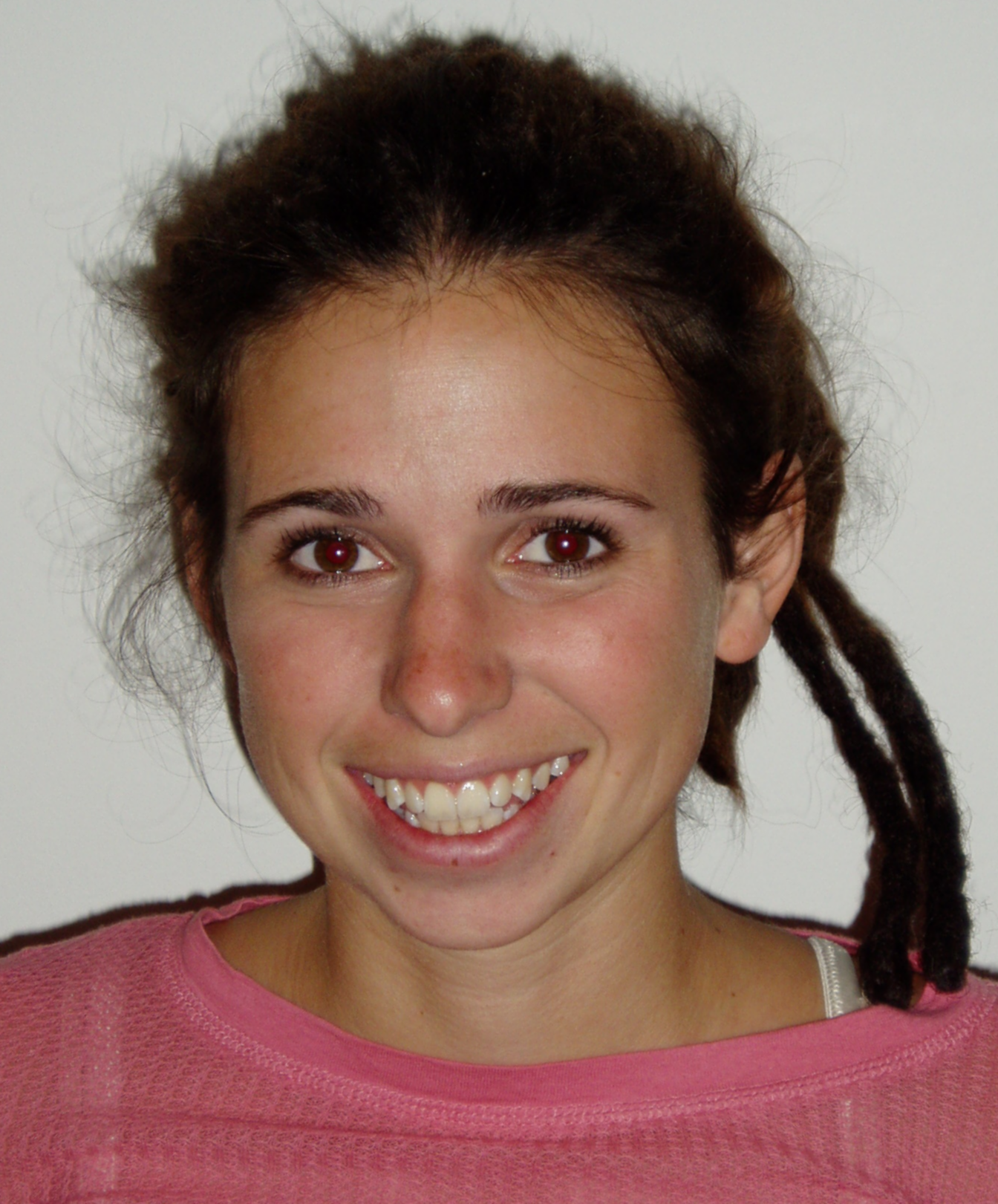
Home || About the Human Rights Center || Applied Human Rights Research || Educational Tools || Field and Training Opportunities ||
Human Rights On-Line || Learning Communities & Partnerships || Co-Directors and Advisory Board


Christina Clusiau
2003 Upper
Midwest Human Rights Fellow / Laura Musser Fellow
Fellowship Site: Maryknoll
Thailand, Bangkok, Thailand
By Pat
McGroarty
07-14-2004
“When you see a photograph of something you haven’t seen before, it brings
your eyes to the people that are affected. It’s not just a snap shot of
something.
It brings the humanity of the situation to the forefront,‚Ä? said Christina
Clusiau while discussing her work as a 2003 Upper Midwest Human Rights
Fellow and the possibilities of working for social justice and human rights
through photography.
Clusiau graduated from the College of St. Benedict in 2003 and moved to
Minneapolis for several months before leaving for her Fellowship in November
of 2003. “I
spent three months in Bangkok working for an organization called Maryknoll
Thailand. It’s an organization working with poor and conflict communities.
Thailand is a non-conflict nation, but it’s surrounded by Burma, Laos, and
Cambodia which are all conflict nations. Many refugees go through Thailand
in hopes of resettlement in countries such as New Zealand and Australia. My
Fellowship involved teaching English to Buddhist monks from Burma, Cambodia,
and Laos, and spending time with refugees from various parts of the world,‚Ä?
explained Clusiau. “Thailand is not a signatory of the Geneva Convention, and
these refugees come without understanding what that means for them. Some have
traveled to two or three countries before arriving in Thailand, where they
are labeled as illegal aliens and end up in refugee camps or moved to the city
and struggle to survive.
There‚Äôs no one to help them except a few small NGO‚Äôs like Maryknoll Thailand.‚Ä?
In addition to the work Clusiau was doing as an English tutor, she found a
way to incorporate her passion for photography into her time in Thailand: “The
idea to use my photography of the trip as an expo was always in the back of
my head, but it’s all starting to come together now. I want to present the
photographs as a piece on what it means to wait in a refugee situation, and
I really think it could develop into something powerful.‚Ä?
Clusiau’s use of photography as a social statement began long before her 2003
Fellowship. During her sophomore year of college, Clusiau spent her spring
break on a service trip to Creative Community for Non-Violence and the Atlantic
Community for Peaceful Protest, both located in Washington D.C. It was during
this trip that her interest in documenting social issues through photography
really came to life.
While living in Minneapolis last summer before leaving for her Fellowship,
Clusiau took a Community Photography class at Minneapolis College of Art and
Design focusing on the issue of ‚ÄúLives of the Working Poor.‚Ä? ‚ÄúThe Community
Photography class has really developed into a network of artists working for
social change called Overexposure. We produced a documentary photography piece
on Minnesota’s working poor. These are people who are working hard, but who
just aren‚Äôt making it with their jobs.‚Ä?
Since returning from her Fellowship, Clusiau has moved back to Minneapolis
and is again working with several local organizations where she can integrate
photography and social justice advocacy: “I’m working with Overexposure again,
and we‚Äôre doing a project called ‚ÄúGet out the Vote‚Ä? this summer. I‚Äôm hoping
to find a position where I can use documentary photography to show what people
are doing to promote advocacy, human rights, and voting issues.‚Ä?
Clusiau will also be working at the Human Rights Center, where she will coordinate
the photography and video portions of the 15th Anniversary Project, as well
as film video pieces for the Human Rights Curriculum Project. She has considered
entering a Masters Degree program in art and photography, and intends to keep
working with photography as a method of social change.